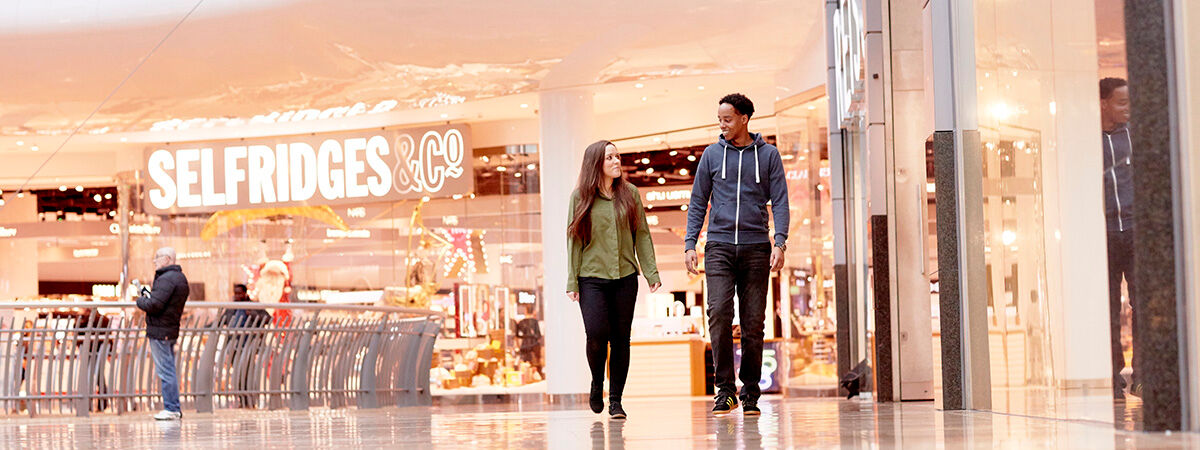Second year BA (Hons) Textile Design student gets selected for writing a winning article to feature on the School of Fashion and Textile blog. As part of the Textiles in Contemporary Context Module, students were set the challenge of writing about contemporary issues driving change in the textile industry, and the opportunities for new developments and innovations moving forward.
Industry professional and alumna of the Textile Design course, Chloe Frost, was invited to select the winning blog. This was won by second year Textile Design student Eleanor MacMillan for her article focusing on trends in the online retail sector. Read the winning blog below.
The Retail and Textiles Industry is one of the most polluting industries to date, yet vital to our economy. Consisting of fast-fashion department stores, textiles manufacturers and internet retailers, providing approximately 4.75 million jobs in the United Kingdom so far this year. Retail is officially defined by the Oxford English Dictionary as ‘the sale of goods to the public for use or consumption rather than for resale’. Yet, retail is so much more than a simple exchange of goods from a shop floor employee to a customer. Its own definition ignores its entire production stage, a reflection of the selective, limited, information consumers are given when asking about where products come from. This lack of textiles knowledge, alongside sustainability, is one of the key issues within the Retail Industry.
Misinformation. For example, how much are Boohoo paying their garments workers? £3.50 an hour. Or what chemicals are Zara dying our winter knits with? As consumers these are questions that may not cross our minds. The dyeing and finishing stages of garments cause environmental damage due to the chemicals and amount of water used. However, the aftercare of a garment is as equally important - this lies in the customers hands. Some would suggest that retailers have a corporate social responsibility to inform us of our garments production lines instead of greenwashing us. Therefore, how will the Retail Industry react and adapt to consumers upcoming demand for more environmentally conscious products that go against current practice?
In 2020, Covid-19 made the economy crumble and took retail sales with it. Many textiles’ designers, for example, moved to freelancing ecommerce to sustain an income. These economic changes in 2020 and the cost of living going up in 2022, has caused consumers to watch their finances more closely. Retailers now need to find ways to ethically reduce their prices to sustain demand, whilst maintaining a good profit margin. This financial shift could cause a loss in brand loyalty as consumers hesitate to make one-time big-ticket purchases (like the latest clothes on the catwalk) or have no choice but to shop fast fashion.
 Meanwhile, social media is driving the online revolution of retail and fast fashion. Some of the top ten digital marketing trends for 2022 include ethical marketing, marketing in the metaverse and TikTok marketing. For example, the social media app ‘TikTok’, has shifted from promoting funny videos and dances to a platform where consumers are constantly being sold products, swipe after swipe. From the one-time viral vloggers, individual artists or paid sponsorship ads to ‘TikTok’ shop! TikTok shop (introduced last year) conforms to contemporary consumers demand, but at what cost? Behind all the cheap and trendy deals, its unethical prices are problematic and someone, somewhere, is paying with their life – underpaid, long hours and unsafe factories. But who is responsible for the creation of TikTok shop?
Meanwhile, social media is driving the online revolution of retail and fast fashion. Some of the top ten digital marketing trends for 2022 include ethical marketing, marketing in the metaverse and TikTok marketing. For example, the social media app ‘TikTok’, has shifted from promoting funny videos and dances to a platform where consumers are constantly being sold products, swipe after swipe. From the one-time viral vloggers, individual artists or paid sponsorship ads to ‘TikTok’ shop! TikTok shop (introduced last year) conforms to contemporary consumers demand, but at what cost? Behind all the cheap and trendy deals, its unethical prices are problematic and someone, somewhere, is paying with their life – underpaid, long hours and unsafe factories. But who is responsible for the creation of TikTok shop?
Coincidentally, when writing this blog and scrolling on TikTok, an advertisement by ‘North Face’ popped up about their new circular design garments. It stated goals such as ‘minimise our suppliers’ and retailers’ environmental footprint’. Similarly, fast fashion brands like ‘C&A’ and ‘Primark’ are advertising similar concepts not only online, but in stores too. But only some brands like ‘Patagonia’ are really driving this positive change. Yvon Chouinard, owner of the brand, stated “the earth is our sole shareholder” and recently donated 100% of their shares (3 billion pounds) to an environmental organization.
A major factor that will contribute to the future of the Retail and Textiles Industry is the ability for designers and scientists to join forces. From the increase of Bio design master’s degrees, to sustainability departments implementing marketing that contrasts current greenwashing like ’H&M conscious’. We need more educated designers like Natasai Audrey Chieza or Susanee Lee and ,as a community, a better understanding of importance of antimicrobial fabric. Implementing sustainable alternatives, technology and science within the design sector will steer the retail industry, and its consumers, in the right direction.
 ELEANOR MACMILLAN
ELEANOR MACMILLAN
BA (Hons) Textile Design student
